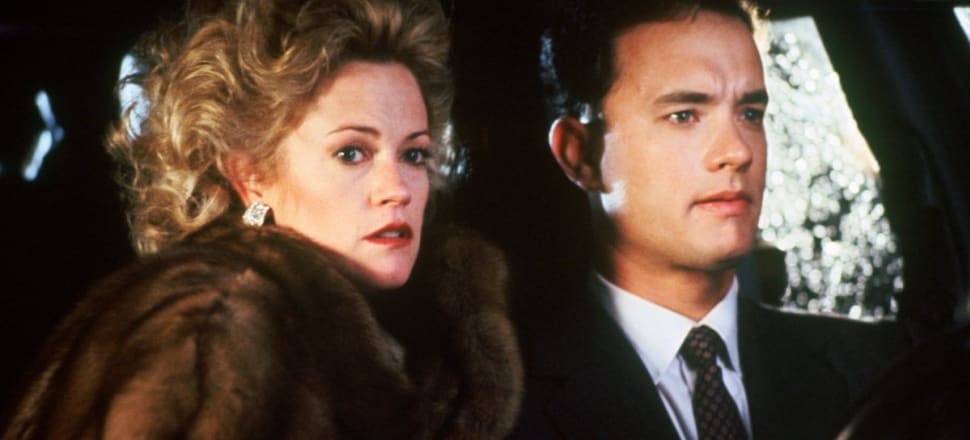
The name's Bond – unhedged Treasury bond. Jonathan Milne argues that bond traders have again become sexy, for all the wrong reasons.
Analysis: Giant Swiss bank UBS has agreed to buy its rival Credit Suisse for 3 billion Swiss francs (US$3.23 billion) and to assume up to $5.4 billion in losses, in a shotgun merger engineered by Swiss authorities to avoid, in Reuters’ words, further market-shaking turmoil in global banking.
This morning's announcement is the latest chapter in the story of Credit Suisse – fast becoming a new Bonfire of the Vanities. The plot lines (involving drug money in Bulgaria, corruption in Mozambique, spying by former executives, leaked client data and now the promise of thousands of job cuts) would be grist to the mill of any thriller – but what elevates it to the level of one of the past century’s greatest stories is the part played by its bond market traders.
Bonds are about the hedging – or lack thereof. Last year, it was the biggest-ever spike in government bond yields that caused the near-collapse of UK pension funds and a sudden end to Liz Truss’ residence at No 10. The collapse of Silicon Valley Bank was because it amassed a US$124b bond portfolio and didn’t hedge against the bulging interest rate exposure.
READ MORE: * Gold price surges as banking tensions worsen: ‘Where might trouble appear next?’ * Fisher Funds loses $80m-plus in bank collapse * Record gold volumes moved to NZ as investors seek haven
Now the Financial Times reports Credit Suisse’s held-to-maturity portfolio of Treasury bonds, maturing in one to five years, stood at US$992 million – again, without any hedge despite the unrealised loss.
Last week, Credit Suisse released its annual report after a delay prompted by last-minute questions from the US Securities and Exchange Commission and reported material weaknesses in its financial reporting over the previous two years. It admitted the flight of customers had yet to reverse.
The chairman of Saudi National Bank, the bank’s biggest shareholder, was asked in a TV interview if he would consider topping up its investment. “Absolutely not,” he said.
“Unlike Silicon Valley Bank, it didn’t have a big pile of unrealised losses on bonds. It was hedged for interest-rate moves. And its deposit base, while shrunken, was well-matched with ample amounts of easy-to-sell assets. But markets weren’t buying it.” – The Wall Street Journal
Credit Suisse shares plunged further. Most analysts agree it could handle the deposit outflows, and its exposure to high interest rates was manageable – but clients and investors needed to keep believing.
“Unlike Silicon Valley Bank, it didn’t have a big pile of unrealised losses on bonds,” the Wall Street Journal reports. “It was hedged for interest-rate moves. And its deposit base, while shrunken, was well-matched with ample amounts of easy-to-sell assets. But markets weren’t buying it.”
As New York bond trader and self-described “Master of the Universe” Sherman McCoy discovered in Tom Wolfe’s epic novel, this is a confidence game. And for Credit Suisse, the bonds that dropped sharply were those that would have been wiped out entirely if the Swiss bank went under – a sign that investors were considering the worst.
“In general, anything that relied on low interest rates should fall into question. And that implies issues for the sprawling fields of private equity and private debt." – John Authers, Bloomberg
Investor confidence is the challenge for New Zealand banks, too.
Like Credit Suisse, they are pretty well capitalised – new Reserve Bank capital adequacy ratios have ensured that.
But they do have some exposure to high interest rates, not so much in their bonds as in their mortgage portfolios. If interest rates continue at these higher levels, there will be those who bought at the peak of the market who will default.
“In general, anything that relied on low interest rates should fall into question,” says Bloomberg commentator John Authers. “And that implies issues for the sprawling fields of private equity and private debt."
That’s why it’s critical for the New Zealand banks, and the Reserve Bank as their regulator, to continue to reassure depositors and investors of their resilience.
It's easy to criticise profits being sent across the Tasman to Australian shareholders, but it's the Aussie parent companies that provide a buffer against any investor concern about the New Zealand banks.
What does this bonfire mean for interest rates?
Later this week, the US Federal Reserve will announce its new interest rates decision.
Any dovish fears that the Fed will hike rates by more than the forecast 0.25 percent this week should be allayed by the banks crisis. That would take it to a peak of 5.0 percent.
Domestically, banks and other lenders have priced in interest rates rises in the expectation the Reserve Bank would hike the official cash rate as high as 5.75 percent – but they are now beginning to reassess.
"The Reserve Bank may have to consider pausing on its plans for further rate hikes given the likelihood the country is already in a technical recession," – Andrew Patterson, Newsroom markets editor
Effectively, the slow-moving Reserve Bank monetary policies are thought to have overshot – so now mortgage rates may begin to drop. Few see Adrian Orr’s monetary policy committee as likely to halt rates rises entirely, but it is likely to ease off the brakes on the economy.
"The Reserve Bank may have to consider pausing on its plans for further rate hikes given the likelihood the country is already in a technical recession," writes Newsroom Pro markets editor Andrew Patterson.
That would reduce the downward pressure on inflation – but it would also reduce the pressure on mortgaged home-owners.
This week, that seems more important. Next week, ahead of the Reserve Bank’s interest rates decision, that could change again.
Like any good thriller, the next twist of the plot keeps us all guessing.







